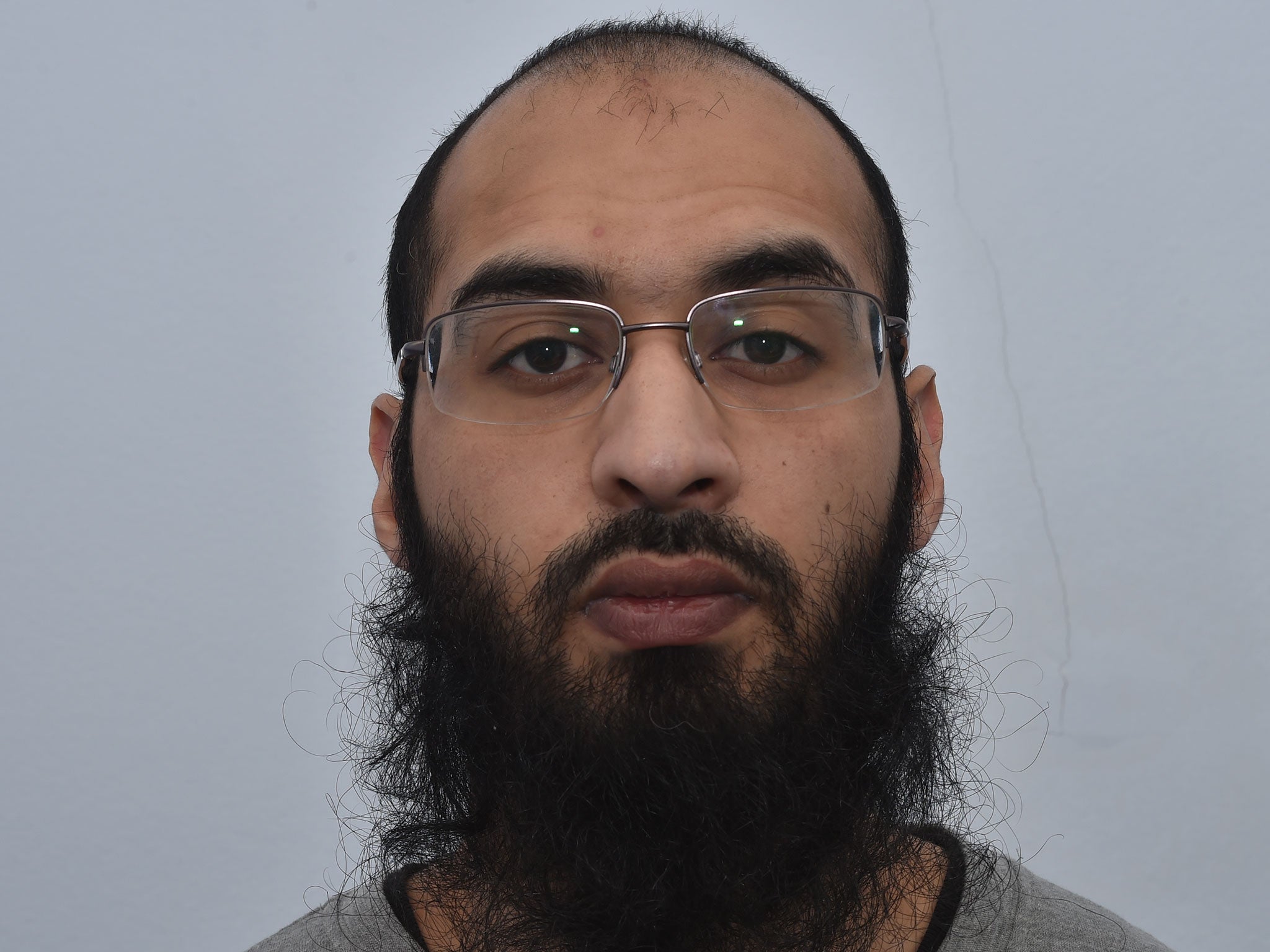Isis supporter who called for terror attack on Prince George's school has jail term cut
Husnain Rashid created a 'toolkit for terrorists' aiming to inspire attacks worldwide

An Isis supporter who created a “toolkit for terrorists” and called for attacks on targets including Prince George, the football World Cup and Jewish communities has had his prison sentence cut on appeal.
Husnain Rashid was originally jailed for life with a minimum of 25 years for terrorist offences including preparing terrorist acts and encouraging attacks.
Police said he attempted to inspire atrocities around the world “on a colossal scale”, using encrypted messaging services to send out advice on using poisons, vehicles, weapons, bombs, chemicals and knives.
But on Tuesday, the Court of Appeal reduced the 32-year-old’s tariff to 19 years.
Lawyers representing Rashid argued that the life sentence was not justified but three judges rejected their claim.
Lord Justice Holroyde, sitting with two other senior judges, told the court: “We are satisfied that [the Woolwich Crown Court judge] was entitled to come to the conclusion that the seriousness of these offences, taken together, was such as to justify a sentence of life imprisonment.”
The Court of Appeal found the original minimum term was too long, because the first judge “fell into error in some aspects of his application of the sentencing guidelines”.
Rashid, of Leonard Street in Nelson, Lancashire, initially maintained his innocence, but changed his pleas to guilty after the prosecution opened its case at trial last year.
He admitted three counts of engaging in conduct in preparation of terrorist acts and one count of encouraging terrorism.
Two further charges of dissemination of a terrorist publication were laid on file.
Rashid had sent at least 300,000 messages and posts, including messages to Isis’s Amaq “news agency”, while holed up in a bedroom in his parents’ home.
Woolwich Crown Court heard he posted messages glorifying terror attacks and aspired to travel to Syria to fight for Isis himself.
One of his posts included a photograph of Prince George, along with the address of his school, a black silhouette of a jihadi and the message: “Even the royal family will not be left alone.”
Rashid used several online platforms to spread Isis and al-Qaeda propaganda, as well as his own material.

A magazine he was producing contained suggestions to strike the 2018 World Cup in Russia with vehicles, weapons or bombs.
Rashid, who was said to have taught at the Muhammadi mosque in Nelson, Lancashire, ran a “prolific” Telegram channel named Lone Mujahid.
It included a recipe for ricin from the al-Qaeda magazine Inspire, how to make Molotov cocktails and napalm, and a suggestion of poisoning supermarket ice creams and fruit with cyanide.
Prosecutors said a common theme of his communications was to inspire and instruct “lone wolf” atrocities, creating an online library with the goal of helping others plan an attack.
His list of suggested targets were wide-ranging – including British army bases, shopping centres, Jewish communities and government buildings.
Rashid urged readers to “fight and spill the blood to the apes in your land” and called for them to “start preparing tools and weapons/explosives”.
He also planned to travel to Turkey and Syria with the intention of fighting for Isis and was in contact with at least one man, who had already made the journey, over how to reach the warzone and gain authorisation to fight.
Investigators believe Rashid was “days away” from leaving Britain by the time he was arrested on 22 November 2017, when he tried and failed to dump his mobile phone.
He provided one British militant who was known online as “Repunzel” with information about methods of shooting down aircraft using lasers and jamming missile systems, the court heard.
Detective Superintendent Will Chatterton, the head of investigations for Counter Terrorism Policing North West, said Rashid aimed to provide an online “toolkit for terrorists” and named targets as far apart as New York, Vatican City and Australia.
“This guy’s sole intention was to provide support, assistance and encouragement to terrorists on a colossal scale,” he told The Independent.
“He was managing and creating a large number of encrypted channels that he was populating with a huge amount of terrorist materials, while glorifying past attacks and suggesting new attacks against specific targets and individuals.
“It was his reach around the world that made him so dangerous.”
Police are running a record of 700 terror investigations and 14 Islamist and four far-right attack plots have been foiled since March 2017.
Bookmark popover
Removed from bookmarks